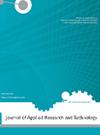基于正则化深度神经网络的心脏病智能诊断系统
Q3 Engineering
Journal of Applied Research and Technology
Pub Date : 2023-02-27
DOI:10.22201/icat.24486736e.2023.21.1.1544
引用次数: 0
摘要
心脏病是一种致命的疾病。及时发现这种疾病可以防止死亡。本文提出了一种利用早期临床参数诊断心脏病的智能系统。该系统是使用正则化深度神经网络模型(Reg-DNN)开发的。克利夫兰心脏病数据集已用于训练该模型。正则化已经通过使用丢弃和L2正则化来实现。采用保留验证方法对Reg-DNN的有效性进行了评估。70%的数据用于训练模型,30%的数据用于测试模型。结果表明,Reg-DNN比传统DNN具有更好的性能。正则化有助于克服过度拟合。Reg-DNN的准确率为94.79%。与文献中现有的系统相比,所获得的结果非常有希望。作者开发了一个包含图形用户界面的系统。因此,任何人都可以很容易地使用该系统来使用临床参数诊断心脏病。本文章由计算机程序翻译,如有差异,请以英文原文为准。
An Intelligent System for Heart Disease Diagnosis using Regularized Deep Neural Network
Heart disease is one of the deadly diseases. Timely detection of the disease can prevent mortality. In this paper, an intelligent system is proposed for the diagnosis of heart disease using clinical parameters at early stages. The system is developed using the Regularized Deep Neural Network model (Reg-DNN). Cleveland heart disease dataset has been used for training the model. Regularization has been achieved by using dropout and L2 regularization. Efficiency of Reg-DNN was evaluated by using hold-out validation method.70% data was used for training the model and 30% data was used for testing the model. Results indicate that Reg-DNN provided better performance than conventional DNN. Regularization has helped to overcome overfitting. Reg-DNN has achieved an accuracy of 94.79%. Results achieved are quite promising as compared to existing systems in the literature. Authors developed a system containing a graphical user interface. So, the system can be easily used by anyone to diagnose heart disease using the clinical parameters.
求助全文
通过发布文献求助,成功后即可免费获取论文全文。
去求助
来源期刊

Journal of Applied Research and Technology
工程技术-工程:电子与电气
CiteScore
1.50
自引率
0.00%
发文量
0
审稿时长
6-12 weeks
期刊介绍:
The Journal of Applied Research and Technology (JART) is a bimonthly open access journal that publishes papers on innovative applications, development of new technologies and efficient solutions in engineering, computing and scientific research. JART publishes manuscripts describing original research, with significant results based on experimental, theoretical and numerical work.
The journal does not charge for submission, processing, publication of manuscripts or for color reproduction of photographs.
JART classifies research into the following main fields:
-Material Science:
Biomaterials, carbon, ceramics, composite, metals, polymers, thin films, functional materials and semiconductors.
-Computer Science:
Computer graphics and visualization, programming, human-computer interaction, neural networks, image processing and software engineering.
-Industrial Engineering:
Operations research, systems engineering, management science, complex systems and cybernetics applications and information technologies
-Electronic Engineering:
Solid-state physics, radio engineering, telecommunications, control systems, signal processing, power electronics, electronic devices and circuits and automation.
-Instrumentation engineering and science:
Measurement devices (pressure, temperature, flow, voltage, frequency etc.), precision engineering, medical devices, instrumentation for education (devices and software), sensor technology, mechatronics and robotics.
 求助内容:
求助内容: 应助结果提醒方式:
应助结果提醒方式:


